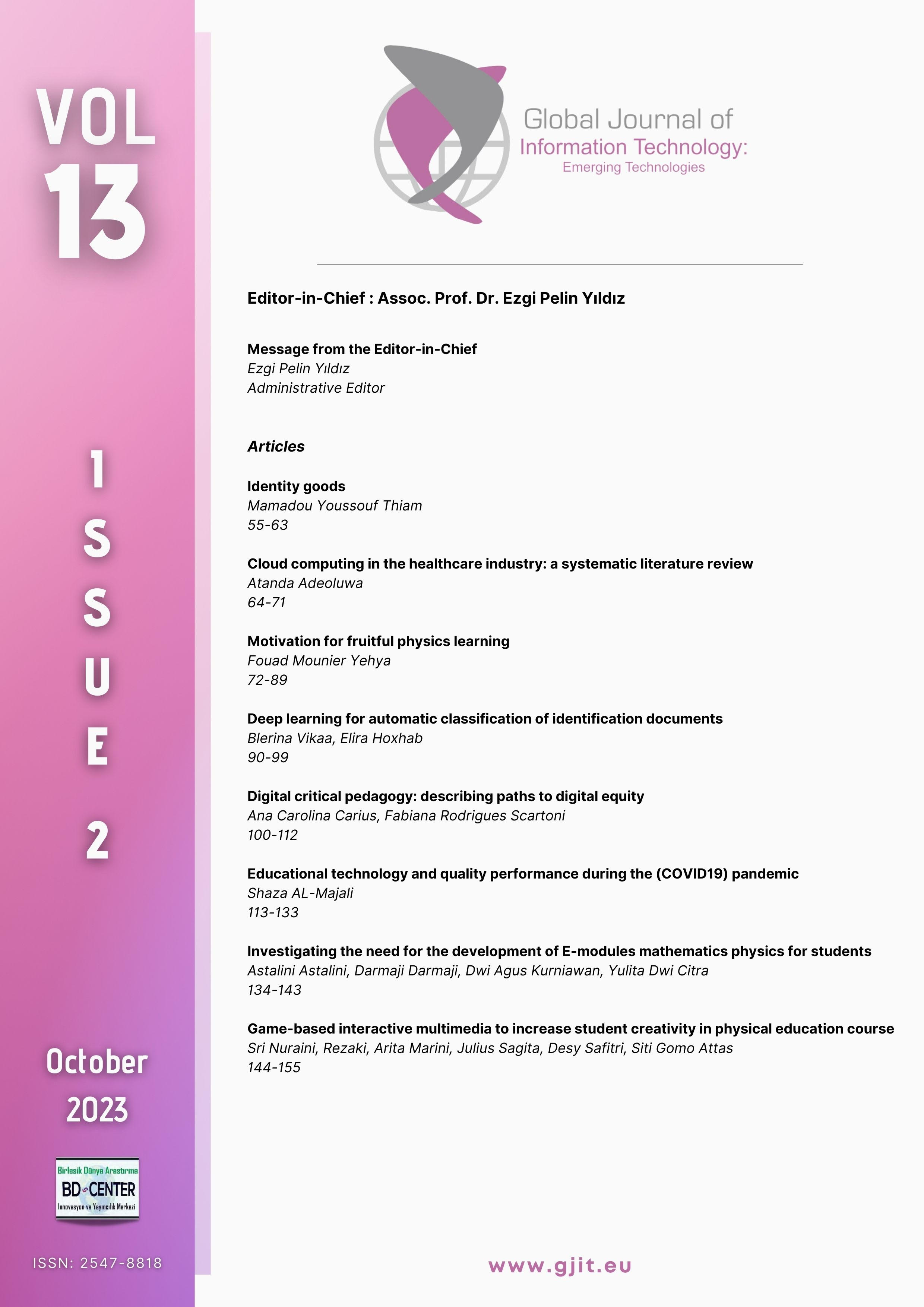Digital Critical Pedagogy: Describing Paths to Digital Equity
Main Article Content
Abstract
This work aims to analyse the speed of implementation of pedagogical practices during the COVID-19 pandemic without concern for the specificities inherent to education for the popular classes, seeking to answer the following guiding question: Is it necessary a revisit to the concept of Paulo Freire's Critical Pedagogy in digital times, to provide the digital equity of the popular classes through education? An exploratory and qualitative case study was carried out with educational actors. Based on this study, it was possible to observe that the pedagogical practices used during the period when schools were closed did not corroborate the wishes of the actors involved and, therefore, led to an expansion of social inequality through the existing digital inequality. Consequently, it is necessary to rescue Freire's teachings, modifying pedagogical practices in this new scenario towards digital equity.
Keywords: Critical Pedagogy; digital equity; educational technology; popular classes; qualitative study.
Downloads
Article Details

This work is licensed under a Creative Commons Attribution-NonCommercial-NoDerivatives 4.0 International License.
Authors who publish with this journal agree to the following terms:- Authors retain copyright and grant the journal right of first publication with the work simultaneously licensed under a Creative Commons Attribution License that allows others to share the work with an acknowledgement of the work's authorship and initial publication in this journal.
- Authors are able to enter into separate, additional contractual arrangements for the non-exclusive distribution of the journal's published version of the work (e.g., post it to an institutional repository or publish it in a book), with an acknowledgement of its initial publication in this journal.
- Authors are permitted and encouraged to post their work online (e.g., in institutional repositories or on their website) prior to and during the submission process, as it can lead to productive exchanges, as well as earlier and greater citation of published work (See The Effect of Open Access).
